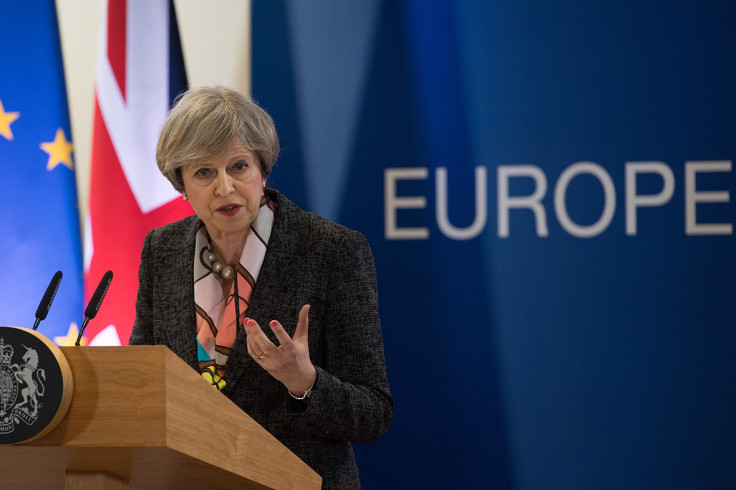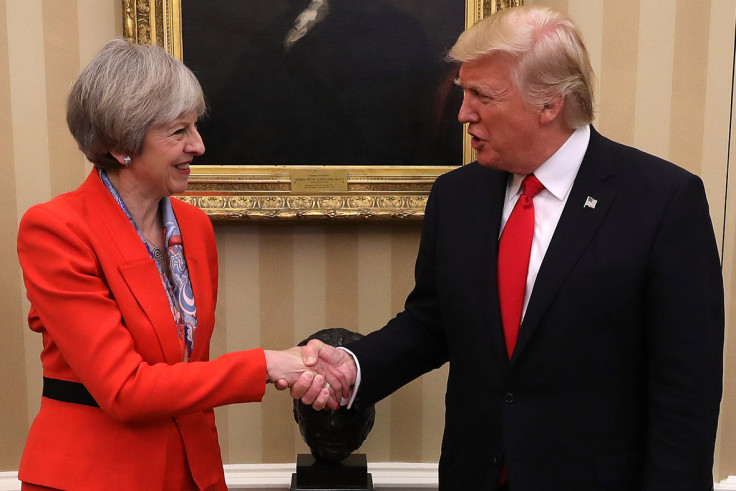Britain will lose its leading role in the world because of its obsession with Brexit
Making Brexit a success means balancing the books and so Britain's foreign policy is disintegrating.

Leaving the European Union (EU) is beginning to get difficult. In recent weeks the prime minister has faced muted opposition in the House of Commons and active defiance in the Lords.
Despite enjoying a position of apparent supremacy, aided by a complicit, quiescent Labour leader, Theresa May still manages to look unstable. She already risks alienating half the nation, no matter which course she decides to take. But worse could come.
First Minister Nicola Sturgeon announced that Scotland could hold another independence referendum and decide to go it alone after all.
At the same time, it must be stressed that Britain is in fact doing well – riding high on a tide of optimism, ready to negotiate hard, increase productivity and enjoy the rewards. The imagery is more than a little fantastical.
The inevitability of Britain's leaving the EU has led to another unusual sight: ministers, diplomats and agents of influence, all of them holding forth on the history of the British nation, all of them doing so without conviction.
A prime example is the speech given recently by Liam Fox, the secretary of state for international trade. He said that Britain had nothing in its history to be ashamed of and can be an outward-looking global power.
The optimism is touching but misplaced. Either he is truly deluded or he is merely talking a good game while preparing for the worst.
"Global Britain" is turning inwards. The British government is abandoning ordinary foreign policy in favour of a Brexit policy. Leaving the EU has become its animating purpose and sole goal in international affairs.
Article 50 will likely be triggered at some point this week, when the tussle in Parliament is brought to a forceful conclusion. This will commit the government and the country to a course of action which will, if it is to be remotely successful, require a singularity of purpose not seen this century.
The government's only ambition is successfully bringing off Brexit. It must make Brexit a success, or nothing else will have mattered and nothing else can matter. The future of the country depends on it, for one thing. But there is more than that at work. Political considerations also play a part.
If the gamble is not seen to have worked, all the verbiage about vouchsafing Britain's future through austerity will be as naught. It will be reduced retrospectively, relegated to irrelevance; those who pushed that line will be subject to scorn.
The government has done all it can to make this possible future inevitable. It wants to present the country with a fait accompli: a superficial choice on which deal we take having left, but no option to return to the status quo ante. And it is doing so for no reason other than satisfying the doctrinaire longings of some ancient faces among the Conservative benches and the deepest desires of the party's membership.
Politically, and more explicable, there is also a wish not waste the massive victory which is practically guaranteed by Jeremy Corbyn's persistence as Labour leader.
Internationally, Britain needs to guarantee a new and equitable trade balance, and to do that the government will court anyone in any circumstances. While financially sensible, this is hardly dignified, and could have been avoided.
The spectacle of Theresa May and her government having to defend Donald Trump – without even the courage of their convictions – after her visit to the US, in the aftermath of his first "Muslim ban'" executive order, was excruciating stuff.

But this can only be repeated as EU exit looms. One cannot turn one's nose up at potential trade partners, possible sources of income, and promised markets.
No matter the illusory nature of Donald Trump's promises; Britain's government is now his keenest defender in Europe, excepting the far-right, still far from government despite all that happened last year. No slander against him will be allowed to stand. And all of this is his due simply for holding out a vague promise of future munificence.
Expect similar treatment of oil-rich states which Britain may once have disdained doing business with. This is true of corrupt regimes and even, it seems, violent ones. Many keen Conservative supporters of Brexit favour lifting sanctions on Russia. No hand, especially now, is too bloody to shake.
Embracing tyrants and their would-be imitators seems to have rubbed off on Britain's leaders. The government appears to be losing faith in the global community, in international action. This is seen not only in the cancellation of various schemes to take in refugees, but also in signalling passivity where once there was active rhetoric.
The fate of Bashar al-Assad, the butcher of Syria and the chief agent of its destruction, is one: now, after years of British insistence he should go, Boris Johnson, the foreign secretary, suggests Assad could stay on and contest elections. How that could possibly work under the framework of an inherently undemocratic regime which controls so little of Syria's total area remains to be seen. But such things are almost immaterial.
Detail in anything other than Brexit is no longer of real interest to our government. It lacks the energy and the inclination to care.
Having a foreign policy is passé; engaging with the world without a financial agenda is no longer the objective.
This can be seen in the creation of two new ministries to deal with leaving the EU and the inevitable aftermath. The Foreign and Commonwealth Office, once one of the most powerful government departments, is being overshadowed and outnumbered by the Department for Exiting the European Union and the Department of International Trade. Foreign policy is being crowded out.
But then, Britain no longer truly has a foreign policy; it has a Brexit policy. Britain no longer has a trade policy; it cares only for balancing the books. And because of this Britain's international standing is weakening and its actions, even on a world stage fit for "global Britain", have never looked more parochial.
James Snell is a British journalist who has written for many international publications. Follow him on Twitter: @James_P_Snell.
© Copyright IBTimes 2025. All rights reserved.






















